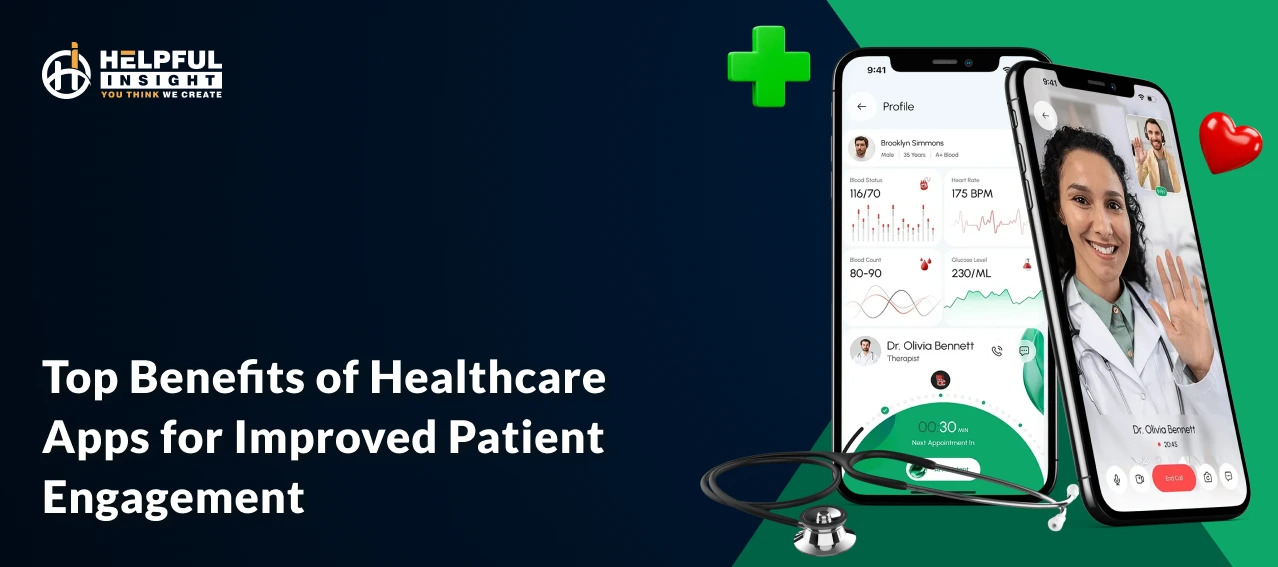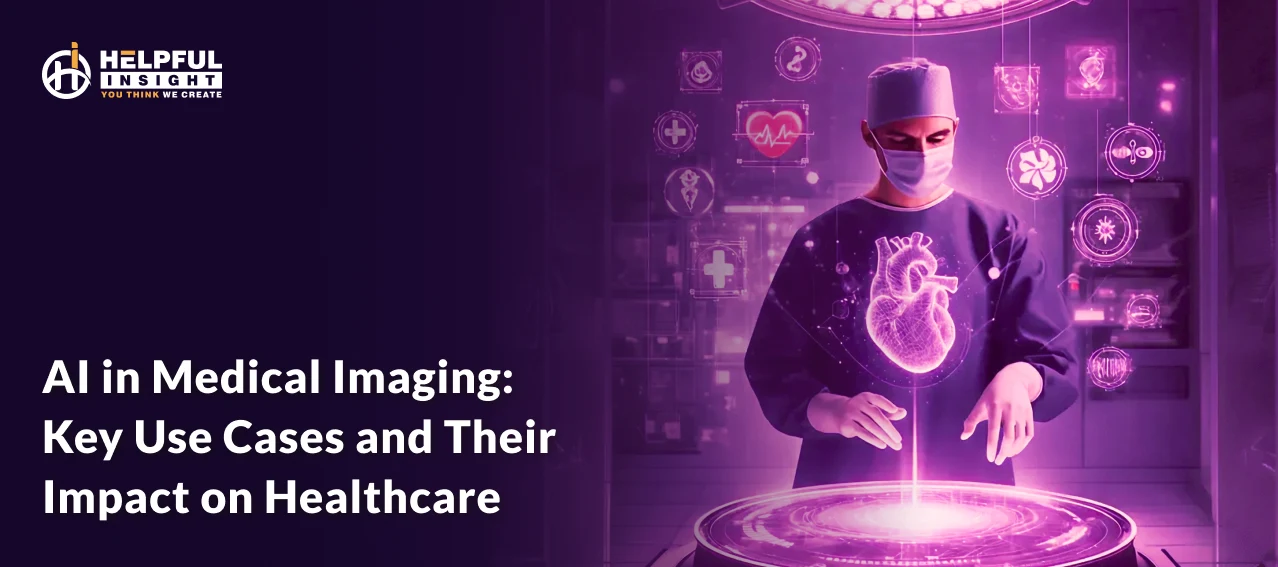As AI has a hand in almost everything, does it resonate in your head to know how it is going to revolutionize the education system? AI is becoming important because it harmoniously blends learning and teaching defining the Future of AI in Education. AI is personalizing learning, with virtual tutors included, optimizing learning, making learning more accessible, and more inclusive. It assists teachers to adapt classes based on the requirement of each student so that they may study in their own setup. Chatbots and adaptive learning software are instances of AI-based tools, which provide instant feedback, and therefore the learning process is more interactive and efficient.
Future of AI in Education: Key Statistics
- An AI-powered chatbot can answer a student’s query in just 2.7 seconds.
- The market value of AI in education globally was over $8.3 billion in 2025.
- The market value of AI in education globally is anticipated to increase at more than 31.2% CAGR during the period from 2025 to 2030.
- North America dominated the market share of AI in education solutions in 2024.
- Natural Language Processing (NLP) dominated the market share of AI in education in 2025.
- Market Growth: Anticipated to grow from $809 billion in 2024 to $3572 billion by 2033, which represents transformative growth.
- AI in Lesson Planning: 50% of teachers currently utilize AI for activities such as lesson planning and research, highlighting its increasing importance in education.
Impact of Teaching and learning with AI
Read to know the advantage of AI in education, its multiple uses, and practical examples:
1. Personalized Learning Experiences
One of the greatest and most required things that came out of AI integration is personalized learning. Conventional classroom environments tend to have a one-size-fits-all strategy, which is not necessarily the best thing for all students with different learning ability. AI can assess the learning style, strengths, and weaknesses of learners to tailor learning experiences according to their own needs.
Algorithms developed by artificial intelligence in learning websites can modify study to the pace of all individuals, recommend content, and offer immediate feedback based on the performance of students. For example, adaptive learning software can assist struggling students who lack knowledge of some areas by giving them extra resources and questions to be completed at their level. That is, students learn at their pace, which results in better understanding and retention of knowledge.
2. Intelligent Tutoring Systems (ITS)
Automatically intelligent tutor systems (ITS) are transforming the way students are assisted beyond the classroom learning environment. With advances in machine learning and natural language processing technologies, these systems offer personalized assistance, answering questions and guiding learners through difficult subjects.
Take sites like Khan Academy and Duolingo, for example. They apply AI to customize the learning process for each individual student. These types of sites see what people are doing and provide customized tips and step-by-step instructions when necessary.
3. Automation of administrative tasks
AI is also applied to automate school administrative tasks, leaving the teachers with their valuable time. Automatic grading, automatic attendance tracking, and automatic scheduling can be done, leaving the teachers with time to teach and engage with their students. AI can automatically grade papers, make data entry automatic, and even make personalized comments automatically for the students so that the teachers can utilize their time on what is most important.
With this, AI is also automating admissions and enrollment processes. From filtering applications to eligibility tests, AI can scan students’ suitability for specific courses and their likely success opportunities. All this becomes quicker and more streamlined, driven by data-based insights.
Read Also: Top 7 Use Cases of Generative AI Amongst Various Industries
4. Better Educational Content and Resources
Other than that, AI is also improving the quality of the content of the learning materials. With the help of Natural Language Generation (NLG), AI is able to generate summaries, quizzes, and even entire lessons based on the existing curriculum. This provides more diversity in learning materials for students and assists teachers in coming up with lessons that are actually applicable to their students’ interests and contexts.
Apart from that, AI draws upon numerous sources to provide students with the most current and relevant information. This is particularly necessary in rapidly evolving subjects such as science and technology, where the challenge lies in staying current. AI ensures that students are continuously being taught the most recent and precise content.
5. Data-Driven Insights for Educators
AI capacity to process huge datasets gives educators valuable insights into the performance and progress of students. Predictive analytics can identify students who are falling behind and recommend timely interventions so that teachers can intervene before small issues turn into big problems.
AI also helps in the analysis of teaching practices, curriculum development, and overall performance. By analyzing metrics such as teacher performance, student participation, and learning outcomes, AI helps in refining the strategies, which brings about constant improvements in the quality of education.
6. Closing Global Educational Disparities
AI has the potential to unlock knowledge gaps in the world by offering quality learning to the poor. AI systems can translate content into forms and languages for various cultures and requirements. This inclusivity enables the learning opportunity to reach more learners globally to utilize customized learning services.
Apart from that, AI facilitates remote learning so that distant or underprivileged students can also get an opportunity to access the same learning material as do the students of affluent communities. That can actually result in the democratization of education, whereby everyone gets a chance to access the same amount of information, thereby resulting in an equally well-informed and better population.
Read Also:- 9 Best Educational Apps in USA for 2025
Challenges and Ethical Issues
Challenge: Students’ information is extremely important and must be safeguarded at all times. It is also a fact that in most instances, AI systems need to have significant access to users’ personal data in order to function optimally. Much data is generated and utilized in academic institutions, wherein referring to them means that necessary protection should be ensured and there are some guidelines, like GDPR or FERPA, which should be followed.
1. Bias in AI Algorithms
Machine learning systems are prone to duplicate the bias present in the training set. While training the models on varied and inclusive data always examine and refine the algorithms to reject bias.
2. Accessibility and Equity
Applying technology and AI to individualize learning for every student can be challenging because students from disadvantaged or rural schools are financially constrained.
Implications: Students ought to have all these needs for them to access the digital learning that is being offered such as the internet and devices among others.
3. Teacher Training and Acceptance
Teachers need adequate training to apply AI technologies in instruction and sync with them and should not fear using these technologies. Teacher training should be offered in an attempt to equip the teachers to train using the application of AI in their practice.
4. Integration with Existing Systems
It must be pointed out that the biggest challenge in the incorporation of AI solutions into educational programs and processes is coordination with the current systems and academic curriculum. Integration between the environments must be done to allow students to easily switch between them and institutions must be prepared to provide support whenever there is a transition need.
5. Reliability and credibility of AI-Content
The information generated by AI systems must be of good quality and also reliable for it to be deemed educationally useful. Proper real-time verifications and checks by educators are unavoidable then to confirm the credibility of AI-generated educational materials.
6. Cost and Resource Allocation
The implementation of AI solutions may also bring about other adverse effects like expensive purchase of the infrastructure and software supporting such technologies, not to mention the expenses of training the human resources for the operation of the technologies. Initially, schools and institutions are required to make estimates and reserve funds for using AI tools and, in some instances, have to search for support or funding funds.
7. Ethical Considerations
Naturally, there should be discussed the ethical ramifications of using AI in education: whether the instruction is to be automated to a large degree and whether education may turn into an automatized and dehumanized process. The employment of AI ought not be substituted for human instructors, and thus policies and regulations should be derived under averting matters of ethical significance.
While there is tremendous potential for AI in learning, we also have moral concerns and challenges that we need to overcome. Some of the biggest concerns are:
- Data Privacy: Implementing AI in learning entails collecting massive volumes of student data. It is imperative that the data is protected and utilized responsibly.
- Algorithmic Bias: Software programs for AI are only as good as what they are being trained on. If that material is biased, then those biases can transfer to the decision-making of the AI and create discriminatory outcomes for certain student groups.
- The Digital Divide: Not all students have the equipment needed to properly employ AI-facilitating learning technology. Level playing field access to digital technology is required for every student in order to avoid creating further existing learning inequalities.
With more and more embedded AI in all aspects of the learning ecosystem, it is imperative that teachers, policymakers, and tech engineers join together to create ethics policies that further guarantee equality and access to all students irrespective.
Key Use Cases and Examples of AI in Education
Artificial intelligence is revolutionizing education through the implementation of innovative solutions that improve teaching and learning processes. The future prospect lies in personalized learning, where AI systems track students’ performance and redesign lessons according to their own needs and learning preferences. For instance, Knewton applies AI in offering customized lessons that change according to a student’s progress, and hence they get targeted resources and exercises as part of their curriculum.
AI is also transforming tutoring by employing intelligent tutoring systems that provide individualized, personalized one-on-one support to students, providing help and solutions whenever they require them. The example in question is Socratic by Google, which is an AI-powered service that assists students with homework using step-by-step solutions and explanations from images of their work. Automated grading is another such technology, where AI can grade assignments and quizzes rapidly so that teachers can spend more time giving feedback and less time on paperwork. Gradescope is one such example that automatically grades assignments, in the case of math and physics, and saves teachers time.
AI-powered virtual learning assistants are also changing the mechanism. These assistants give students immediate answers to questions, do clerical work, and assist teachers in classroom management. For example, the IBM Watson Education offers artificially intelligent tutors that allow students to learn their lessons while making teaching simpler for the teachers. Artificial intelligence also transforms language learning by using platforms such as Duolingo, which can automatically reset levels of lessons based on progress by a single learner and provide immediate feedback in advancing in language proficiency.
Predictive analytics is another wonderful use of AI. By monitoring students, AI can forecast performance trends and spot at-risk students who are likely to be left behind. AI is used in Civitas Learning to pinpoint students at risk before they are too far gone to do anything about it, and teachers then have an opportunity to step in. AI makes content creation and curation possible by automating the process of creating or proposing study material suited for specific purposes. ScribeAI is also employed by teachers to automatically create study guides, quizzes, and reading assignments that are tailored to the curriculum.
Artificial intelligence is also being implemented in virtual and augmented reality education. These permit students to be exposed to lessons in ways they would not if they were attending a traditional classroom. ClassVR is one of the tools by which AI is enhancing areas such as geography, science, and history with interactive classes educating students differently. On an admin level, AI is also used to automate operations such as time scheduling, report attendance, and resource assignment so that teachers could focus on educating. QuoDeck is a tool using AI that automates operations such as lesson planning as well as schedule classes to enable the process to be streamlined.
Lastly, AI is assisting with academic integrity in plagiarism and cheating. AI is being utilized through Turnitin in checking assignments to detect originality because students are working on their own. The above are some of the ways AI is changing learning in a manner that it has become more personalized, efficient, and accessible to both teachers and students.
Read Also:- 12 Best Online Education Platforms Similar to Coursera for 2024
The Future of AI-Driven Personalized Learning
As technology keeps evolving, AI-driven personalized learning will revolutionize education in incredible ways. Here’s a glimpse into how this new approach is shaping the future of learning.
- The generative AI market is predicted to expand to $51.8 billion in 2028 from $19.57 billion in 2025, which is an unprecedented expansion and potential.
- Universities could invest as much as $20 million in creating AI-based curricula over the next five years, which suggests enormous investment in incorporating AI into education.
- By 2030, AI will automatically grade half of all college essays and almost all multiple-choice tests.
- 80-90% of the universities will be using AI-based teaching assistants in the near future, indicating a trend towards more interactive and automated learning environments.
Tailored Learning Experiences
AI possesses the impressive capability of personalizing learning for every learner based on their personal strengths, weaknesses, and learning pace. What this translates to is rather than a generalized system, learners get individual tutoring and adaptive learning paths that address them specifically.
Interactive Virtual Classrooms
AI technology is also making virtual classrooms more sophisticated, developing interactive learning spaces. Speech-to-text features help in learning a language, while virtual labs enable students to perform science experiments interactively and safely. AI can even help in developing learning content for online education, making the entire experience richer.
Natural Language Processing (NLP)
Natural Language Processing is a revolution when it comes to language learning. With automated translation, language coaching, and dialogue-like interactive systems, AI makes new language acquisition more interactive and engaging.
Transform your digital experience with cutting-edge AI solutions
The future of education is greatly dependent on artificial intelligence. It is the reason companies all over the world are massively adopting Al learning solutions in order to keep up with revolutionary improvements and achieve competitive edges. Educational Al software development, though, is a very demanding and time-consuming process. It needs the skills of a skilled learning mobile app development firm such as Helpful Insight who can develop a personalized Al solution according to your business requirements. As a top artificial intelligence development company in Dubai, US, Australia, and other international locations, we have a team of tech experts who can design and develop innovative Al solutions with high-end capabilities, assisting your company in data analysis, business intelligence, brand recognition, and more.
Throughout our 9+ years of experience, we have implemented numerous successful Al projects for a number of well-known clients. Thus, if you wish to harness the advantages of Al in learning, then reach out to our experienced professionals, who shall be happy to help you. With projected exponential development in AI take up and market size, its adoption ensures changing the education industry on a global scale and you can be best of all with Helpful Insight. Contact us today to know further!









